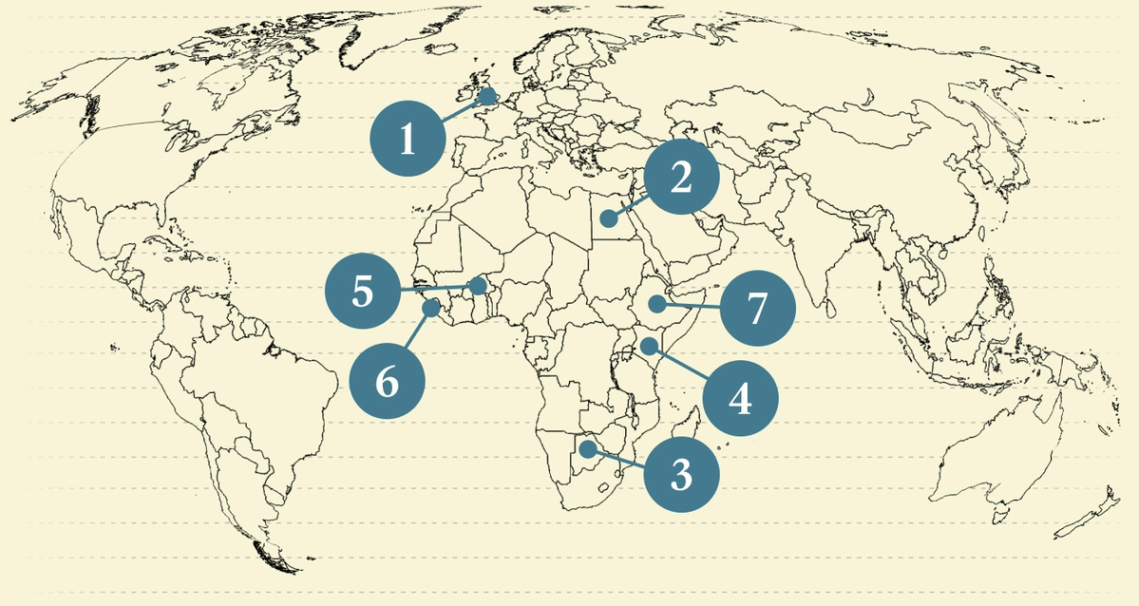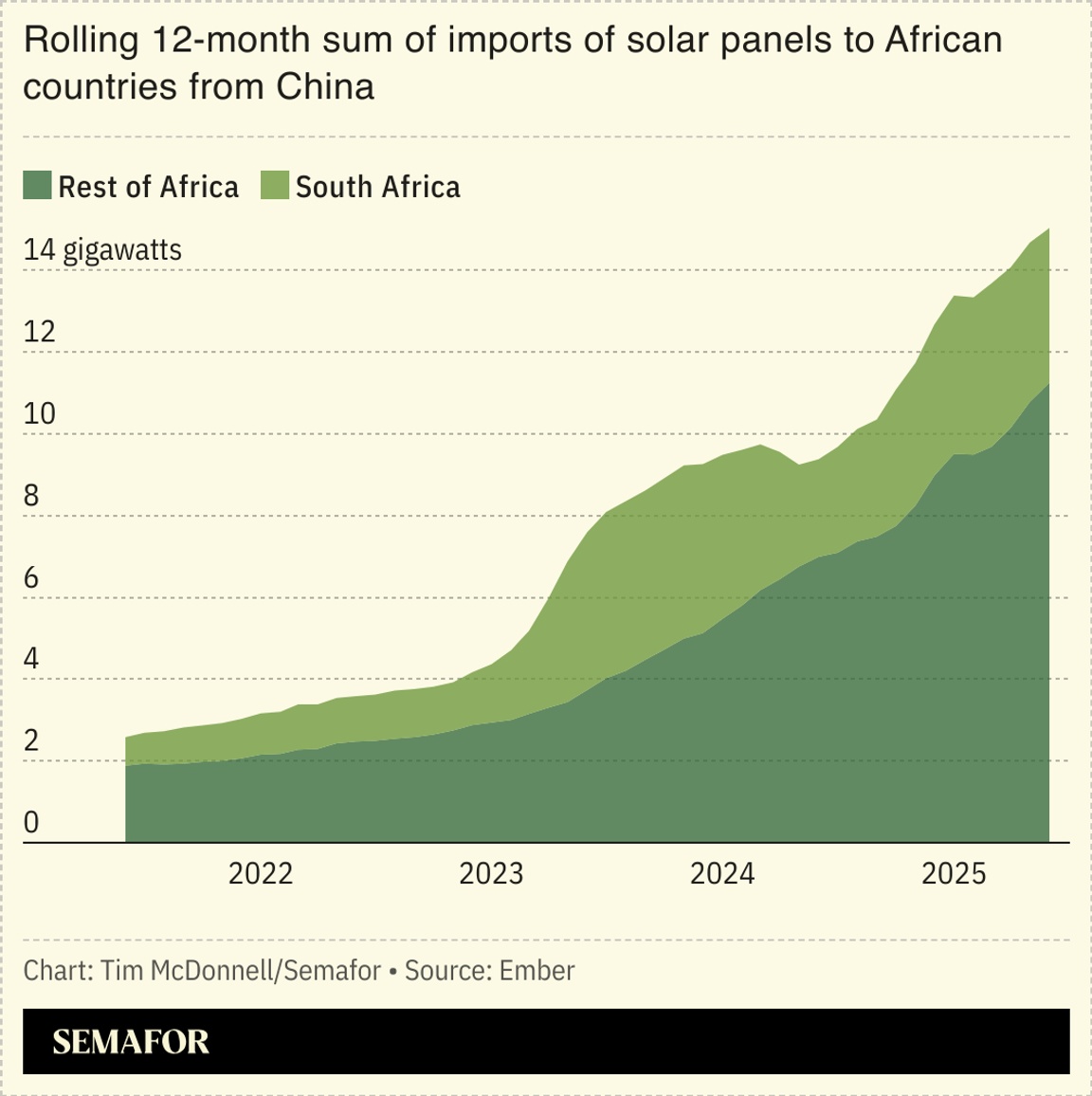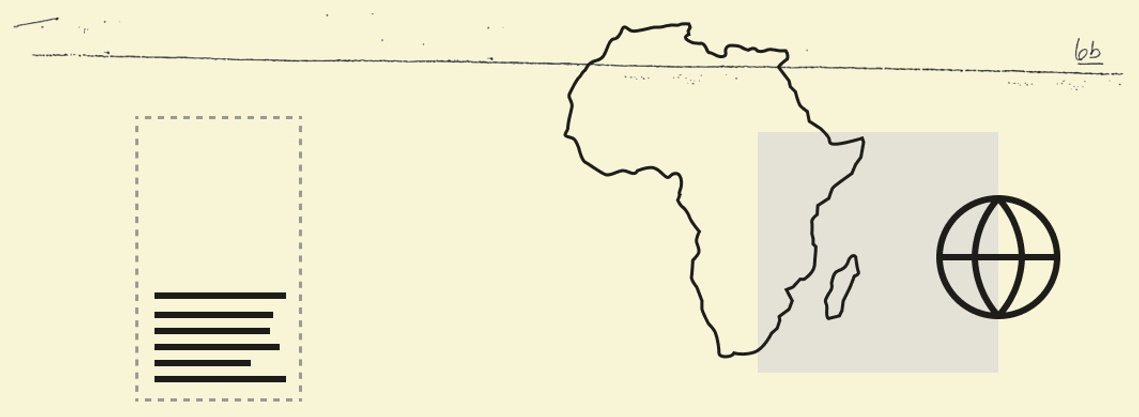| | In this edition: London seeks African company listings, Botswana declares health emergency, surging ͏ ͏ ͏ ͏ ͏ ͏ |
| |  | Africa |  |
| |
|
 - London seeks Africa listings
- Moody’s expands
- Botswana’s health emergency
- Kenya presidential bid
- Malaria program ends
- Solar imports surge
- Ethio Telecom projections
 Ivorian archivists preserve the country’s music and pop culture. |
|
London exchange seeks African listings |
| |  | Alexander Onukwue |
| |
 Jeff Moore/PA Images via Getty Images Jeff Moore/PA Images via Getty ImagesThe UK wants more African companies to prioritize London when seeking to raise money from capital markets, a British government official told Semafor. More than 100 African companies have raised over £17 billion on the London Stock Exchange (LSE) in the 10 years to 2020, with two particularly notable listings from the continent in recent months: Africa Finance Corporation, the Lagos-headquartered infrastructure investor, listed a $500 million eurobond in March, and Guaranty Trust Holding Company, the parent of one of Nigeria’s largest banks, raised $100 million in an initial public offering last month. “The UK is trying to be more inventive to sell London as a financial services center from where companies can attract global capital, not just a place to do business in and leave,” said Tracey Austin, a director at the UK’s Department for Business and Trade. The London bourse is in competition with the major US stock markets for Africa’s public companies: New York’s two main exchanges each amount to six to eight times the size of the LSE by capitalization, but London has attracted the most IPOs by African companies on any exchange outside of the continent. |
|
Moody’s bolsters Africa operations |
 Angela Weiss/AFP via Getty Images Angela Weiss/AFP via Getty ImagesMoody’s will increase its stake in Egyptian credit rating agency MERIS in order to bolster its presence in Africa. The move by the New York-based firm follows recent accusations that Western ratings agencies overstate risk levels in Africa, pushing up the cost of borrowing. MERIS was founded in 2003 as a joint venture between an Egyptian consultancy and Moody’s, and provides ratings in Egypt. The additional stake being purchased will make Moody’s the majority shareholder in the company. MERIS will retain independence by issuing its own credit ratings with its own methodologies, under the leadership of a distinct team, Moody’s said. The updated shareholding follows the full acquisition by Moody’s last year of Global Credit Rating, a provider of credit ratings on African markets with offices in Kenya, Mauritius, Nigeria, Senegal, and South Africa. |
|
Botswana declares health emergency |
 Botswanan President Duma Boko. Tshekiso Tebalo/Xinhua via Getty Images. Botswanan President Duma Boko. Tshekiso Tebalo/Xinhua via Getty Images.Botswana’s President Duma Boko declared a public health emergency because of a shortage of essential medicines and medical equipment. The economy in the world’s top diamond producer by value has been hit by a downturn in the precious stone’s international market, a strain exacerbated by the impact of the US cutting aid that supported the country’s health sector — Washington funded a third of Botswana’s HIV response, according to UNAIDS. Boko, in a televised address, announced $18.5 million of emergency health funding and said the military would oversee a distribution drive to repair medical supply chains in the country of 2.5 million people. The announcement follows a warning by the health ministry this month that it faced a shortage of medical supplies and owed around $75 million to private health facilities and suppliers. Botswana relies on diamond sales for around 80% of foreign exchange earnings and has a decades-long diamond mining arrangement with De Beers. But global diamond sales have been hit by oversupply and poor demand, partly tied to rising sales of lab-grown gems. The Financial Times on Wednesday reported that Botswana has hired French investment bank Lazard and Swiss lender CBH Bank to be co-advisers on plans to acquire De Beers. |
|
Kenyan activist mounts presidency bid |
 Kenyan activist Boniface Mwangi. Simon Maina/AFP via Getty Images. Kenyan activist Boniface Mwangi. Simon Maina/AFP via Getty Images.Kenyan activist Bonface Mwangi, who has been a fierce critic of President William Ruto, declared his intent to seek the presidency in 2027. Mwangi, 42, who announced his bid on Wednesday, has been a leading voice in youth-led protests against the government over the past two years. In June, he sued the Ruto government as well as those of neighbors Tanzania and Uganda in an East African Court and the International Criminal Court, alleging that he was abducted and tortured by their security agents in May. Ruto said in April that he is confident he will be re-elected. He rode to power in 2022 on promises to retool Kenya’s economy towards productivity, to champion ‘hustlers’ by expanding economic opportunities for youth. But his push to raise taxes sparked anti-government sentiments, helping raise Mwangi’s profile as a voice for young Kenyans and a self-acclaimed “people’s watchman.” |
|
Burkina Faso stops malaria initiative |
 Target Malaria, a major research program backed by the Gates Foundation, has been shut down by the Burkina Faso government after a campaign by local anti-Western activists. The campaigners claimed the program was a danger to the West African country’s health sovereignty. Anti-Western sentiment has taken hold under the nearly three-year old junta of Burkinabe leader Ibrahim Traoré: His military government has cut ties with former colonial ruler France and forged closer relations with Russia. Target Malaria’s Burkina Faso team of around 45 people is headed by award-winning scientist Professor Abdoulaye Diabaté. The focus of the program’s work has been eliminating malaria — which kills nearly 600,000 people every year, most of whom are children in Africa — by editing the genetic makeup of male mosquitoes and releasing them in the wild to prevent the reproduction of female mosquito species that transmit malaria. A Burkinabe government statement did not clarify the reasons for shutting down the program but said “all samples will be destroyed.” |
|
Record solar panel imports |
 African countries are importing a record volume of solar panels from China, including a rising share to countries other than South Africa. The last 12 months saw a 60% spike in imports across the continent, according to a new analysis from the research group Ember. At least 25 countries imported more than 100 megawatts worth of panels during that period, up from just 15 in the prior year. Most of those imports are for rooftop, rather than utility-scale systems, suggesting that more homeowners outside the continent’s traditional solar stronghold, South Africa, are finding ways to afford and install home solar systems. All those panels will make a significant contribution to improving electricity access, Ember reported, but adoption in Africa still lags far behind other big emerging markets like Pakistan. |
|
Ethio Telecom projects growth |
 Eric Lafforgue/Art in All of Us/Corbis via Getty Images Eric Lafforgue/Art in All of Us/Corbis via Getty ImagesEthiopia’s state-owned Ethio Telecom said full-year revenue was projected to increase by 45.5% in the year to June 2026, based on rising customer numbers and data usage. Chief Executive Frehiwot Tamiru said he also expects a 6% increase in subscribers to 88 million in the 2025/26 fiscal year and a 14% increase in customers for the company’s mobile money service Telebirr, Reuters reported. Competition has been growing in Ethiopia’s telecoms space since Kenya’s Safaricom won Ethiopia’s first private telecoms license in 2021 and launched in the country the following year. Safaricom is also targeting a growth in subscriber numbers in the country, driven by the move to digital payments in Africa’s second-most populous country. |
|
 The next wave of global growth starts at The Next 3 Billion. Convening against the backdrop of the UN General Assembly, Semafor will host on-the-record conversations with Iván Duque, Former President, Colombia; Idris Elba, Award-winning Actor, Filmmaker, Musician, and Activist; Cristina Junqueira, Co-Founder & Chief Growth Officer, Nubank; Patrick Muyaya, Minister of Communications, Democratic Republic of the Congo; Peter Ndegwa, CEO, Safaricom; and more on the economic, social, and global impact generated by bringing the next three billion people online. September 24, 2025 | New York City | Delegate Application |
|
 Business & Macro |
|
|